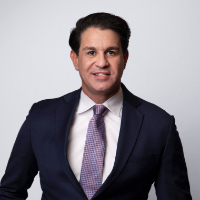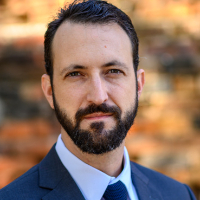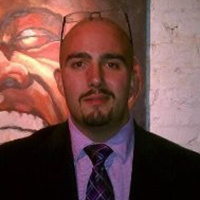 Metairie Criminal Lawyers, Louisiana
Metairie Criminal Lawyers, Louisiana
Sponsored Law Firm
-
 x
x

Click For More Info:
-
Babcock Trial Lawyers
10101 Siegen Ln #3-C Baton Rouge, LA 70810» view mapCriminal Defense We Want Your Injury Claim PAID NOW!
At Babcock Trial Lawyers, we work for our clients, maintaining our reputation of excellence as criminal defense & personal injury lawyers in Baton Rouge.
225-500-5000
Sponsored Lawyers
1-10 of 45 matches
Accident & Injury, Criminal, Divorce & Family Law, Estate, Traffic
Eugene Redmann is a lifelong resident of New Orleans. After attending Jesuit High School for two years, Gene graduated from O. Perry Walker High School in 1976. Gene worked in private business and then received a degree in accounting from Loyola University in 1988. He entered Loyola University School of Law in 1988 and graduated in 1991. Gene began clerking at the Civil District Court for the Parish of Orleans as a junior in law school in 1990 for the Honorable Gerald P. Fedoroff and continued there until 1992. Gene then went in to private practice, where he continues today. Gene comes from a distinguished line of lawyers. His father, the Honorable William V. Redmann, was a Court of Appeal Judge in New Orleans from 1967 until 1987 when he retired as Chief Judge due to health reasons. Two of Gene’s eight siblings are lawyers. More than 40 of Gene’s extended family are lawyers in the New Orleans area. Gene has been in private practice for the past 20 years. He has a wide practice, including personal injury, criminal and DWI cases and many traffic offense cases. Additionally, Gene handles divorce and family cases, civil matters and expungement of criminal records.
(more)Accident & Injury, Criminal, Personal Injury, Car Accident, Motorcycle Accident
Mr. Santana is a native of Southeast Louisiana and was born in Thibodaux. He earned his bachelor’s degree in Political Science from Louisiana State University. He then received his Juris Doctor from Loyola Law School. Attorney Santana prides himself on his accessibility, hands-on approach, and effectiveness in achieving results for his clients. He is a trial attorney who spends the majority of his time in court. Mr. Santana represents clients in both civil and criminal matters, which range from personal injury cases to homicide. Attorney Santana is also a licensed real estate title agent and is licensed to practice law in all state courts of Louisiana and in the Eastern District of Louisiana.
(more)Immigration, Personal Injury, Divorce & Family Law, Criminal, Workers' Compensation
Miguel Abraham Elias is an aggressive litigation attorney with strong leadership, vast trial experience, and excellent negotiation skills. Born in Puerto Rico and half Cuban, Miguel is fully bilingual in both English and Spanish. Miguel left Puerto Rico when he was fifteen years old to study at Monteverde High School near Orlando, Florida. He then attended Loyola University in New Orleans, Louisiana, graduating in May of 1994 with a Bachelor in Business Administration and a concentration in Management and Marketing. He went on to pursue a law degree at Loyola University School of Law in New Orleans, where he obtained his Juris Doctorate in Common Law with Civil Certificate in May of 1997. In 1998, Miguel received his license from the Louisiana Supreme Court and began his practice as an associate at the Law Office of Neville G. Orrett, where he had previously worked as a paralegal. He was quickly promoted to named partner. He continued his practice at the Law Office of Orrett & Elias for two years. In the year 2000, Miguel opened his own practice- Miguel A. Elias, APLC. Since then, his office has served clients of all nationalities and throughout the State of Louisiana. His practice continues to be at the forefront of professional and excellent legal representation. Miguel resides in Kenner with his lovely wife and four beautiful daughters.
(more)Immigration, Personal Injury, Divorce & Family Law, Criminal, Workers' Compensation
Miguel Abraham Elias is an aggressive litigation attorney with strong leadership, vast trial experience, and excellent negotiation skills. Born in Puerto Rico and half Cuban, Miguel is fully bilingual in both English and Spanish. Miguel left Puerto Rico when he was fifteen years old to study at Monteverde High School near Orlando, Florida. He then attended Loyola University in New Orleans, Louisiana, graduating in May of 1994 with a Bachelor in Business Administration and a concentration in Management and Marketing. He went on to pursue a law degree at Loyola University School of Law in New Orleans, where he obtained his Juris Doctorate in Common Law with Civil Certificate in May of 1997. In 1998, Miguel received his license from the Louisiana Supreme Court and began his practice as an associate at the Law Office of Neville G. Orrett, where he had previously worked as a paralegal. He was quickly promoted to named partner. He continued his practice at the Law Office of Orrett & Elias for two years. In the year 2000, Miguel opened his own practice- Miguel A. Elias, APLC. Since then, his office has served clients of all nationalities and throughout the State of Louisiana. His practice continues to be at the forefront of professional and excellent legal representation. Miguel resides in Kenner with his lovely wife and four beautiful daughters.
(more)Business, Criminal, Lawsuit & Dispute, Civil & Human Rights, Real Estate
The Law Office of William Most focuses on addressing civil rights and environmental issues, but has also handled matters involving land use, disability rights, drafting of contracts, trust litigation, etc.
(more)Criminal, Car Accident, Felony, Accident & Injury, DUI-DWI
I am a New Orleans attorney fighting hard to protect my clients' rights, property, and liberty through experience, skill, and knowledge of the Louisiana judicial system.
(more)Consumer Rights, Business, Accident & Injury, Civil Rights, Criminal
Harrece Gassery is an attorney licensed to practice in the state of Louisiana. His interests include Criminal Defense, Criminal Appeals, Civil Rights Violations, Personal Injury, Social Security Disability and Veterans Benefits Claims. As a law student he completed externships at the Innocence Project and East Baton Rouge Public Defender’s office. He was also a member of the Public Interest Law Society, Black Law Student Association, and Christian Legal Society. He is a man of faith, and it is this faith that drives his want to help those in need and work zealously on their behalf.
(more)Criminal, Felony, Misdemeanor, White Collar Crime, Juvenile Law
Criminal Court is a place where someone's life can be irrevocably changed for the worse. I have born witness to incredible injustice being done to innocent people. I have also seen a person sacrificed and thrown away by the system without being given any chance at redemption. Seeing these stories play out is what drives me as a defense attorney, to protect people from being crushed by the system.
(more)


 Stephen Babcock Baton Rouge, LA
Stephen Babcock Baton Rouge, LA Practice AreasExpertise
Practice AreasExpertise








